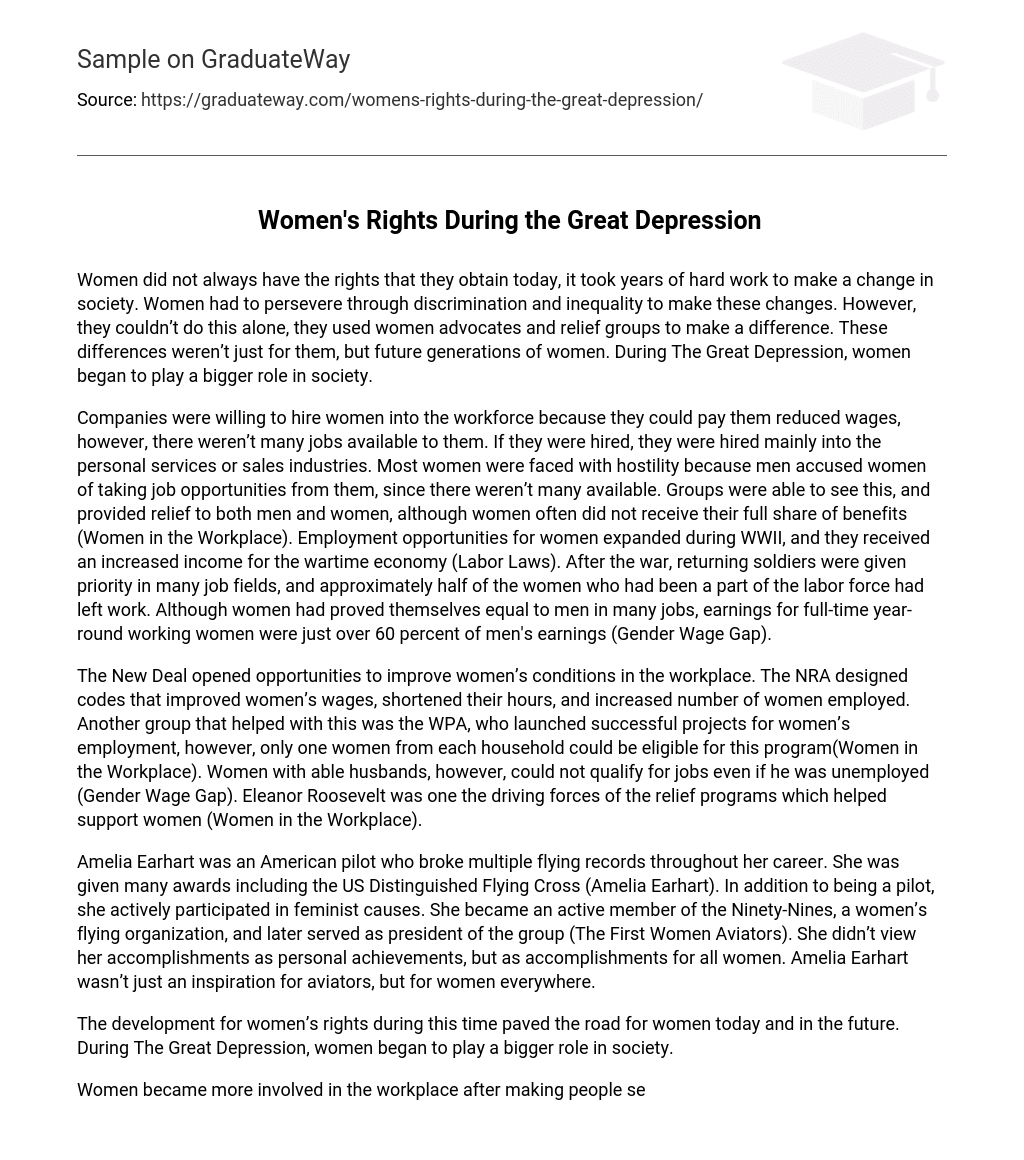Women did not always have the rights that they obtain today, it took years of hard work to make a change in society. Women had to persevere through discrimination and inequality to make these changes. However, they couldn’t do this alone, they used women advocates and relief groups to make a difference. These differences weren’t just for them, but future generations of women. During The Great Depression, women began to play a bigger role in society.
Companies were willing to hire women into the workforce because they could pay them reduced wages, however, there weren’t many jobs available to them. If they were hired, they were hired mainly into the personal services or sales industries. Most women were faced with hostility because men accused women of taking job opportunities from them, since there weren’t many available. Groups were able to see this, and provided relief to both men and women, although women often did not receive their full share of benefits (Women in the Workplace). Employment opportunities for women expanded during WWII, and they received an increased income for the wartime economy (Labor Laws). After the war, returning soldiers were given priority in many job fields, and approximately half of the women who had been a part of the labor force had left work. Although women had proved themselves equal to men in many jobs, earnings for full-time year-round working women were just over 60 percent of men’s earnings (Gender Wage Gap).
The New Deal opened opportunities to improve women’s conditions in the workplace. The NRA designed codes that improved women’s wages, shortened their hours, and increased number of women employed. Another group that helped with this was the WPA, who launched successful projects for women’s employment, however, only one women from each household could be eligible for this program(Women in the Workplace). Women with able husbands, however, could not qualify for jobs even if he was unemployed (Gender Wage Gap). Eleanor Roosevelt was one the driving forces of the relief programs which helped support women (Women in the Workplace).
Amelia Earhart was an American pilot who broke multiple flying records throughout her career. She was given many awards including the US Distinguished Flying Cross (Amelia Earhart). In addition to being a pilot, she actively participated in feminist causes. She became an active member of the Ninety-Nines, a women’s flying organization, and later served as president of the group (The First Women Aviators). She didn’t view her accomplishments as personal achievements, but as accomplishments for all women. Amelia Earhart wasn’t just an inspiration for aviators, but for women everywhere.
The development for women’s rights during this time paved the road for women today and in the future. During The Great Depression, women began to play a bigger role in society.
Women became more involved in the workplace after making people see the discrimination they faced everyday. This is only a snapshot of the steps women have taken for equality, but it shows the challenges they have overcome. With the help of empowering women and relief groups, they were able to make an ever lasting impact.





